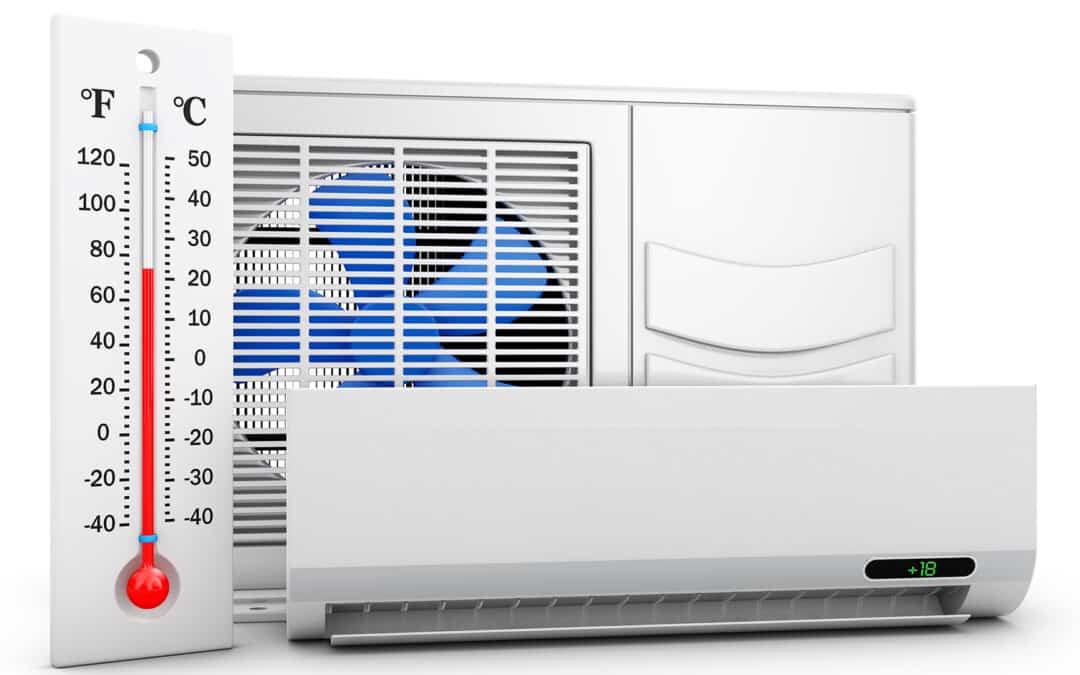Introduction: Why it’s important to assess the condition of your current air conditioner
When temperatures rise in summer, your air conditioner becomes a crucial part of your indoor comfort. However, over time, your air conditioner can deteriorate, lose efficiency, and even stop working completely. It is therefore important to regularly assess the condition of your air conditioner to avoid costly problems and sudden breakdowns. In this article, we will explain how to assess if your current air conditioner is dying and what signs should alert you.
Warning signs of a dying air conditioner: What are the symptoms to look out for?
If you have owned an air conditioner for several years, it is important to regularly monitor its condition to ensure that it is working effectively. Here are some warning signs that your air conditioner is dying:
- Fresh air isn’t as fresh anymore: If the air coming out of your air conditioner isn’t as cool as it used to be, it may be a sign that the unit is losing its efficiency.
- Strange noises: If your air conditioner makes strange noises, such as squeaks or rattling, it may indicate a mechanical problem.
- Unpleasant odors: If your air conditioner emits unpleasant odors, it may be a sign that mold has grown inside the unit.
- Water leaks: If you notice water leaks from your air conditioner, it may indicate a drainage problem.
- High energy costs: If you notice that your energy bill has increased significantly for no apparent reason, it may be a sign that your air conditioner is no longer working optimally.
It is important to note that these symptoms can be caused by different problems and it is necessary to have your air conditioner diagnosed by a professional to know the exact cause. However, if you notice several of these symptoms, chances are your air conditioner is dying and it’s time to replace it.
In the next section, we’ll give you tips for assessing the overall condition of your air conditioner and determining if it’s time to replace it.
Decreased performance and efficiency: How to evaluate the efficiency of your air conditioner?
If your air conditioner isn’t running as efficiently as it used to, it’s possible that your air conditioner’s performance will decrease over time. If you find that your air conditioner is taking longer to cool your home, is producing unusual noises, or seems to blow warm air, then it is possible that the performance of your air conditioner has decreased.
The first step in evaluating the effectiveness of your air conditioner is to check the filters. Dirty filters can impede airflow, which can reduce the efficiency of your air conditioner. It is recommended to change the filters every few weeks to make sure your air conditioner is working properly.
If replacing the filters doesn’t solve the problem, your air conditioner may need repairs or maintenance. A qualified air conditioning technician can inspect your system to identify potential problems and propose solutions to improve the efficiency of your air conditioner. It’s important not to ignore signs of decreased performance or efficiency, as this can lead to higher energy costs and more expensive repairs in the long run.
Increased operating costs: How do you know if your air conditioner is using too much energy?

Rising operating costs are another sign that your air conditioner may be dying. If you notice that your electricity bill is higher than usual, your air conditioner could be the culprit.
It is important to understand that all air conditioners have some energy efficiency and that the older your air conditioner, the less efficient it will be. If your air conditioner is running continuously but can’t maintain a comfortable temperature, it may also indicate that it is consuming too much energy. Refrigerant leaks can also increase the energy consumption of your air conditioner.
There are several ways to assess the energy consumption of your air conditioner. First, you can compare your electricity bill this year to the previous year’s. If you see a significant increase, it is possible that your air conditioner is consuming too much energy.
In addition, you can also use a power meter to measure the energy consumption of your air conditioner. This can give you a clearer idea of how much energy your air conditioner uses.
Finally, the SEER (Season Energy Efficiency Ratio) rating is another important measure of your air conditioner’s energy efficiency. Newer air conditioners generally have a higher SEER rating, which means they are more energy efficient. If your air conditioner has a SEER rating below 13, it may be time to replace it with a newer, more energy-efficient model.
It is important to understand that the increase in operating costs can be due to several factors, including an increase in electricity rates or problems with electrical wiring. However, if you have eliminated all other possible causes, it is highly likely that your air conditioner is dying.
Recurring problems: How do I identify frequent breakdowns and costly repairs?
Recurring problems are another sign that your air conditioner is dying. Frequent outages and costly repairs can indicate that your system is at the end of its life. If you find that you need to repair your air conditioner several times a season, it may be a sign that your system is no longer reliable. Frequent repairs can also be expensive, which can end up costing more than buying a new system.
It is important to note that recurring problems can also be caused by insufficient maintenance. If your air conditioner isn’t properly maintained, it may be more likely to break down. Be sure to schedule regular maintenance for your air conditioning system to minimize the risk of breakdowns and extend the life of your system.
If you notice recurring problems despite regular maintenance, it may be time to replace your air conditioner. Repeated repairs can be costly, and it’s probably more cost-effective in the long run to replace your system than keep repairing it. A professional technician can help you assess the status of your system and determine if it’s time to replace it.
In summary, recurring problems and costly repairs may indicate that your air conditioner is at the end of its life. Regular maintenance is important to extend the life of your system, but if you see recurring problems despite this, it may be time to think about a replacement. A professional technician can help you determine if your system is dying and recommend the best solution for your situation.
Lifespan: When should you consider replacing your air conditioner?
Even if you’ve followed all the necessary steps to maintain your air conditioner, it’s inevitable that at some point you’ll need to consider replacing it. But when should you consider replacing your air conditioner?
In general, the lifespan of an air conditioner is about 10 to 15 years. If your air conditioner is more than 10 years old and it’s starting to show signs of wear, it may be time to replace it. Older air conditioners tend to be less efficient and energy efficient than newer models. If your air conditioner uses a lot of energy and repairs cost more than replacement, it’s time to replace your unit.
Also, if your air conditioner needs frequent repairs, it can also be a sign that it’s time to replace it. Repair costs can add up quickly, so it may be more cost-effective to replace your unit with a new one. In addition, an air conditioner that requires frequent repairs may be less efficient and less reliable, which can lead to additional costs in the long run.
Finally, if you plan to sell your home in the near future, it may be a good idea to replace your air conditioner before putting it on the market. A new, efficient air conditioner can increase the value of your home and attract more potential buyers. In addition, a faulty or inefficient air conditioner can be a hindrance to the sale of your home.
In short, if your air conditioner is more than 10 years old and starting to show signs of wear and tear, if repair costs are high, if your unit requires frequent repairs or if you are considering selling your home, it may be time to replace your air conditioner. This may seem expensive in the short term, but it can save you money in the long run by reducing maintenance and energy costs.
Conclusion: The benefits of an early replacement of your air conditioner
The decision to replace your air conditioner may seem difficult, especially if the system is still working. However, an early replacement can offer many benefits.
First of all, replacing your air conditioner before it breaks down can avoid the inconvenience of a sudden breakdown in the middle of the heat season. By planning the replacement in advance, you can also enjoy a wider selection of models and prices, without the pressure of having to make a decision quickly.
In addition, modern air conditioners are much more efficient than older models. A newer air conditioning system can significantly reduce your energy bills, which can be a huge long-term benefit.
Finally, replacing your air conditioner early can increase the value of your home and improve indoor air quality. An effective air conditioning system can also help remove excessive moisture and mold, creating a healthier environment for you and your family.
In short, it’s important to watch for the warning signs of a dying air conditioner and regularly evaluate the effectiveness of your current air conditioning system. If your air conditioner is showing signs of aging or you’re seeing a drop in performance, increased operating costs, or recurring problems, consider replacing it early. The benefits of a new, modern air conditioning system are numerous, including reduced energy costs, improved indoor air quality and the value of your home.

